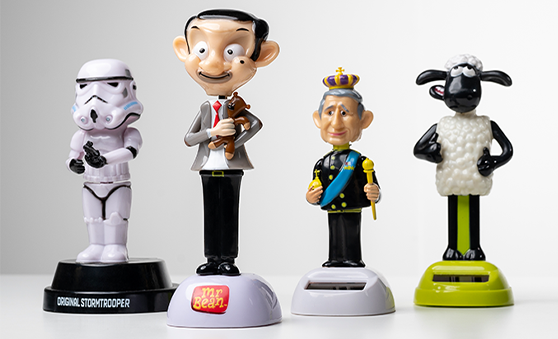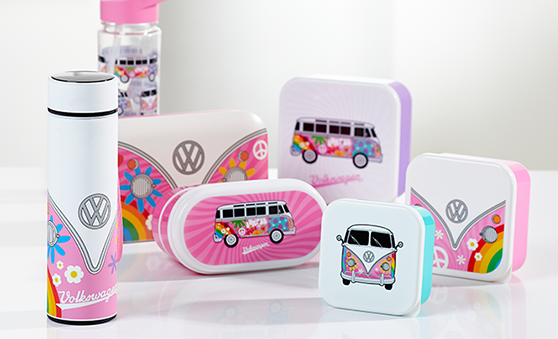Battery Regulations and Safe Disposal Information
Battery and electrical safety is crucial for ensuring user safety and environmental protection. Improper battery storage, usage, or disposal can lead to significant hazards, including fires, toxic leaks, and environmental damage.
Stringent regulations mandate safe handling and disposal practices in the UK and EU to prevent these risks. These laws require businesses and consumers to responsibly manage batteries and electrical items to minimize harm to people and the environment.
Below is information on battery and electrical safety, including best storage, use, and disposal practices.
What are the regulations?
Any business that sells products with batteries must comply with all legal and safety requirements imposed by the regulations.
This includes the appointment of a person or person(s) who is responsible for ensuring battery compliance with EU and UK regulations.
Businesses must ensure that all relevant documentation regarding the batteries, including information on battery type, and recycling or disposal procedures, are easily available to retailers and consumers.
They must also ensure labels and product instructions of any product that contains a battery, or requires a battery to function but is not included with the product, show all the relevant safety and disposal information.
How do these regulations affect retailers?
If you sell batteries or products that include a battery, whether replaceable or integrated, then you need to make sure you are storing them correctly, and out of reach of children.
Retailers who sell batteries or products containing batteries must provide facilities for consumers to return used batteries for safe disposal. The guidelines on these facilities vary, but for further information on obtaining a battery disposal bin and the regulations contact your commercial waste provider or local authority.
Which Puckator products fall into the battery and WEEE regulations?
 Batteries
Batteries
Our product range has 3 types of item that contain batteries.
Products that come with batteries included that can be replaced. The majority of these will contain a cell or button battery.
- These include watches, light and sound keyrings, and LED ornaments.
Products that come with batteries that are integrated and cannot be replaced.
- Products that fall into this category are LED toys, light-up pens, and digital bottles.
Products that require a battery to function, but it is not included. Most of these types of items are products that require AA or AAA batteries.
- These include wall and mantle clocks, and LED ornaments such as backflow burners.
WEEE (Electrical items)
WEEE regulations don't just apply to big electrical items such as TVs and fridges, anything with an electrical component is covered. That means items that contain a battery, or require a battery to work, fall into this category, but we also sell other items that are covered by WEEE regulations.
Products with a solar unit.
- Our top-selling solar pals are covered by the WEEE regulations. Solars do not contain a battery, but they do contact a solar until to convert sunlight and light into the dancing action.
Products with an LED component.
- LED ornaments and lights such as dragons and skulls that light up.
Products with a power cable.
- Products that come with a USB power cable, or EU/UK plug and cable.
Safe Disposal
Depending on your location, and whether you are a business or an end consumer, there are many ways to dispose of batteries and electrical items safely.
Commercial Business Waste Collection
If you are a business or retailer, your commercial waste collection will provide options for safe battery and electrical disposal. This may be a free service or could be a paid extra, check with your provider for more details.
Retailers and supermarkets
Retailers who sell batteries, products that contain batteries, or electrical items, must provide safe and easily accessible disposal facilities. These will be available for the end consumer and not for commercial disposal.
Local Authority and Council Facilities
Your council or local authority website should have information on disposal points such as at your local recycling centre or council offices. This will be for end consumers but they may also offer business facilities as well.
Recycling centres will have dedicated areas for batteries and small or large electrical items.
Local authorities might also offer battery and electronic compliance or collection schemes where they will collect batteries and electrical items from your home. Again these may be offered as a free service, or charged.
Disposing of them via one of these options, or similar schemes, is important. Do not put batteries or electrical items in your general rubbish. Many items can be recycled.
 What are the hazards of batteries and how can we avoid them?
What are the hazards of batteries and how can we avoid them?
Batteries are an essential part of our daily lives, and it's important to be aware of the risks and how to mitigate them.
Here are some general tips on storage, use and disposal.
Risk of fire or explosion
Batteries can overheat, or ignite, especially if damaged.
- Store batteries in a cool, dry place, away from direct sunlight and flammable materials. Avoid exposing them to extreme heat or puncturing them.
Risk of Toxic Leaks and chemical burns
Batteries contain chemicals that if they leak, can cause skin irritation, chemical burns, or environmental contamination.
- Check batteries for signs of damage before using them, and store them in a secure container to prevent damage. Wear protective gloves if handling damaged batteries and dispose of them according to the safe disposal regulations.
Risk of swallowing and choking
Small batteries, like button cells, pose a swallowing hazard, especially for children or pets. Ingestion can cause severe internal injuries.
- Store batteries away from children and pets in a locked safe area.
The above does not just apply to unused batteries, but also to products with batteries in them. Make sure battery covers are securely fastened, and when replacing batteries in a product, do so away from children and dispose of the used batteries quickly and safely.
Mainstream manufacturers of batteries have updated their packaging to make it child-resistant, so new batteries cannot be accessed. Some button batteries now have a coating on them that has a bad taste which makes children spit them out if they put them in their mouth.
Hazard of improper disposal
If batteries are improperly disposed of, such as in general waste, they can leach toxic substances into soil and water, contributing to pollution and harming wildlife and ecosystems. They can also cause fires or burns if the waste is managed incorrectly.
- Follow the safe disposal regulations and do not dispose of batteries or electronics in the normal waste.
Short circuits
Batteries can cause short circuits if they come into contact with metal objects, leading to burns or fires.
- Store batteries so they do not come into contact with metal objects. Keep them in their original packaging until ready to use. Dispose of used batteries regularly via safe disposal channels.
 What is WEEE?
What is WEEE?
The Waste Electrical and Electronic Equipment (WEEE) Regulations are laws aimed at reducing the environmental impact of electrical and electronic equipment (EEE) by encouraging the recycling and responsible disposal of such items. The WEEE regulations place responsibility on manufacturers, retailers, importers, and distributors of EEE to ensure proper waste management of their products.
As with the battery regulations businesses and retailers are responsible for clear labelling, as well as reporting and safe disposal.
The bin with the X symbol indicates that the product should not be discarded as unsorted waste but must be sent to separate collection facilities for recovery and recycling. The WEEE marking must appear on any electrical and electronic equipment placed on the market.
Retailers who sell these items must offer take-back schemes for consumers so that electronics can be safely and environmentally disposed of.
WEEE and battery registration numbers
Below you will find our current WEEE and battery registration numbers.
Batteries Registration Numbers:
- National Packaging Waste Database (NPWD) code: NPWD332054
- Battery producer registration number (BPRN): BPRN07568
WEEE Registration Numbers:
- National Packaging Waste Database (NPWD) code: NPWD332054
- WEEE producer responsibility number (WEEE PRN): WEE/MM2889AA
- Germany - DE71657825
- France - FR026818_05NQFB
GPSR and battery safety compliance contacts
Name: Battery Compliance Officer
Email: batterycontact@puckator.co.uk
- EU Address: Puckator European Distribution Centre Sp. z o.o Ul. Graniczna 8AA, 54-610 Wrocław, Poland
- UK Address: Puckator Ltd, Lowman Works, East Taphouse, Liskeard, Cornwall, PL14 4NQ, UK
Or you can contact our General Product Safety officer.
Name: GPSR Compliance Officer
Email: info@puckator.net
- EU Address: Puckator European Distribution Centre Sp. z o.o Ul. Graniczna 8AA, 54-610 Wrocław, Poland
- UK Address: Puckator Ltd, Lowman Works, East Taphouse, Liskeard, Cornwall, PL14 4NQ,
Where can you find out more?
Below are additional links to related resources.
European Commission Waste & Recycling – Batteries
UK Government Consumer Product Recycling Batteries & Electrical Waste
Business Companion Batteries Guide
European Commission WEEE Information
European Commission GPSR Information
Last Updated: November 2024








